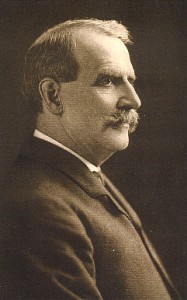Wisconsin’s First RNC Chairman
 On the seventh ballot of their meeting yesterday, the members of the Republican National Committee elected Wisconsin state party chairman Reince Priebus as their new chairman. Contrary to some reports, Priebus is not the first national party chairman from Wisconsin. That designation belongs to Henry Clay Payne, who chaired the RNC for a brief time in 1904.
On the seventh ballot of their meeting yesterday, the members of the Republican National Committee elected Wisconsin state party chairman Reince Priebus as their new chairman. Contrary to some reports, Priebus is not the first national party chairman from Wisconsin. That designation belongs to Henry Clay Payne, who chaired the RNC for a brief time in 1904.
Payne started his political career in 1872 at the most grassroots level – the Young Men’s Republican Club of Milwaukee County – as a volunteer for President Grant’s reelection campaign. As a reward for his party service, he was appointed postmaster of Milwaukee in 1876 – this before civil service laws protected such positions from political patronage. At one point, he told the citizens of Milwaukee, “As long as I am postmaster, I shall employ only Republicans if I can find those that are competent.” When Democrat Grover Cleveland won the presidency in 1884, he promptly fired Payne as postmaster, labeling him an “offensive partisan.”

